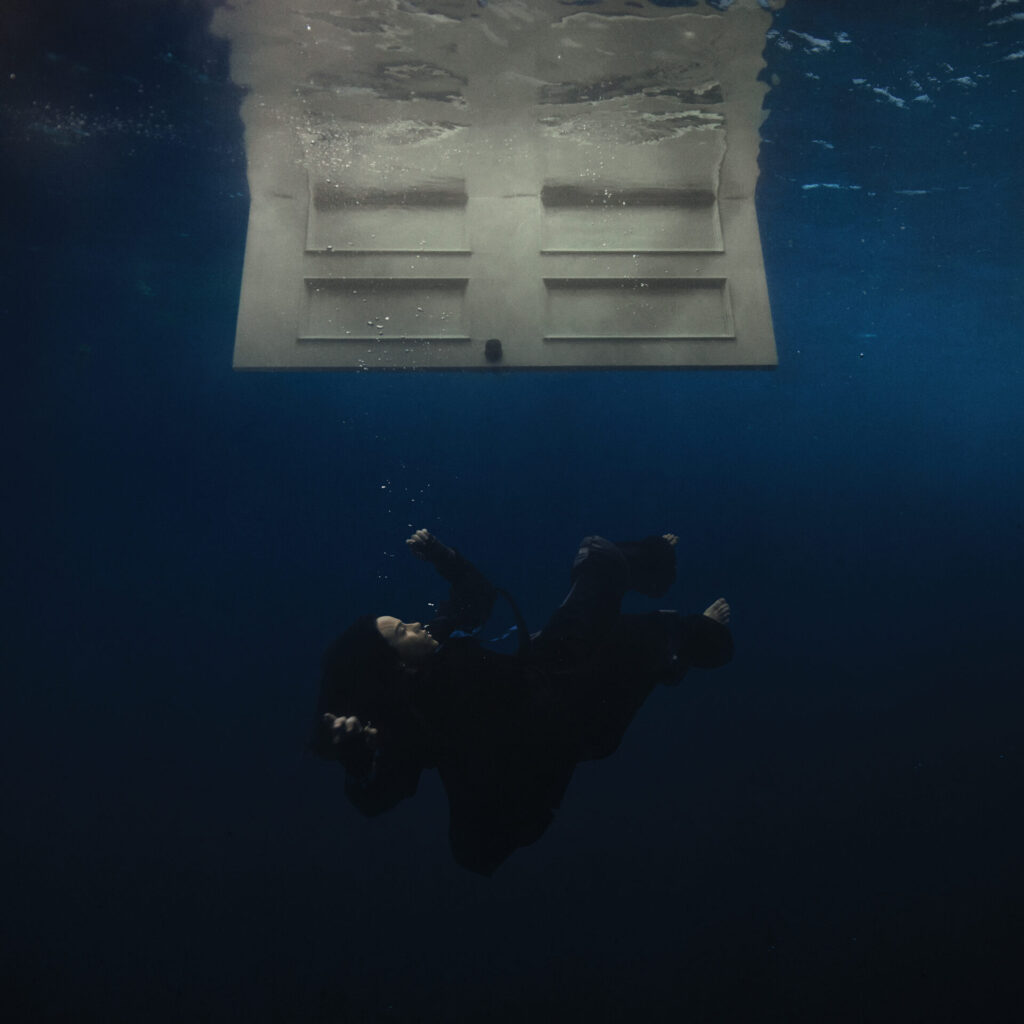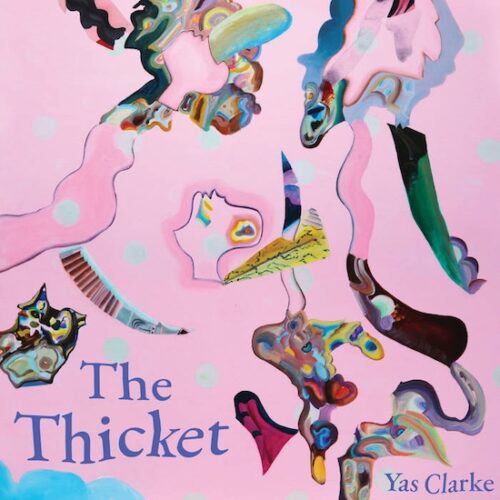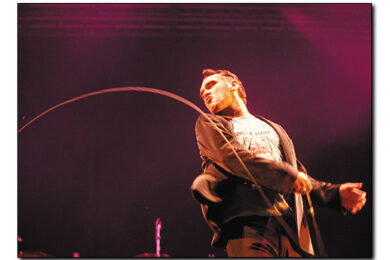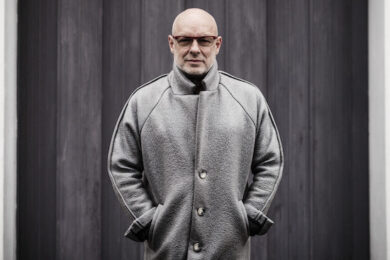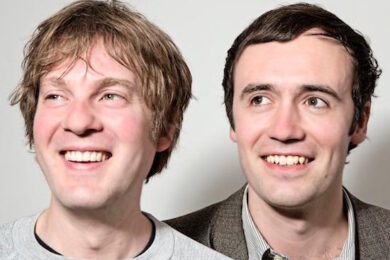Billie Eilish releases her third album without teaser singles, no videos, a few tunes dropped pseudo-informally during DJ sets at hip parties (Coachella for example). For a hot month, snippets scrabbled over and frantically collated by fans, Eilish plopped clips here and there into the public sphere, exuding the vibe of someone knowing she could leave most of the buzz-generating labour to the Internet.
So it’s not exactly a ‘surprise’ album. She announced it at the Grammys but still we’ve only known of Hit Me Hard And Soft for a few weeks, and I do think it comes sooner than Eilish would’ve been expected to deliver a record, given the vast reach of her Barbie commission ‘What Was I Made For?’
She’s now the youngest person ever to win two Oscars, in any category.
Also, this is a normal length record, thank god, just ten tracks. A few songs stretch to the five minute mark but Hit Me Hard And Soft feels compact and graspable. It’s a bit of a relief when Eilish’s older peers are chucking out sprawling collections filled with b-roll. This is a cut gem you can fit onto one actual (recycled) vinyl disc.
Taped with omnipresent big brother Finneas co-writing and producing and holding that space safe, Hit Me Hard And Soft isn’t a massive departure, yet their scope and scale as a team is developing beautifully. If anything this album gives off the slight sense of a reaction against the musical themes (certainly the promotional imagery) of previous record Happier Than Ever, with its (slightly awkward, even sometimes forced) nods to mid-twentieth century classicism and burlesque.
Now, almost as soon as we get going, on opener ‘SKINNY’, Billie sings:
People say I look happy
Just because I got skinny
But the old me is still me — and maybe the real me
And I think she’s pretty
Eilish has a terrific gift for achieving lyrical directness without reducing her poetic force. She’s such a tidy, clever, brutal songwriter, with a ton of standout lines, often over and over in one jam. Check this verse:
Am I acting my age now?
Am I already on the way down?
When I step off the stage, I’m a bird in a cage
I’m a dog in a dog pound
And then we meet a protagonist who will recur:
You said I was your secret
You didn’t get to keep it
The Internet is hungry for the meanest kind of funny
And somebody’s gotta feed it
I won’t keep quoting as much as this, but it’s tempting. It’s sung over an affected fingerpicked guitar ballad, which later devolves into a lovely instrumental coda of live strings. Finneas (I guess) is flexing his scoring muscles and it’s a treat.
Immediately that’s done, we launch into the thirsty, queer strut of ‘LUNCH’ with delicious thunky bass, which if it catches the mood right, could drive a huge summer bop. Billie unabashedly eulogises her hot crush:
I could eat that girl for lunch
Yeah she dances on my tongue
Tastes like she might be the one
She utilises the kind of horny phrasing that Ed Sheeran occasionally comes up with, in a more het-normative fashion, sounding icky coming out of his mouth, yet with male gaze shooed away, can be breathlessly liberating. I don’t know if Eilish has been as assuredly queer before this, but she owns it.
Alongside regular themes — trauma, body image, growing up in the public eye, playing around with being a bit evil — Hit Me Hard And Soft is a singularly relationship-focused work. Eilish addresses her lover directly and gives herself over to capturing that experience, like it’s a first love, a first great heartbreak.
The palettes are bigger, the voice more mature, but we’re still deep in the realm where bona fide DIY bedroom pop — minimal and eccentric and bloopy — gets augmented and enriched by the grownups, only if and when Billie and Finneas want that to happen. I may be over-thinking but I imagine them as freer in their actual music production than almost any other major artist, simply because they can lay down so much of it at home, shape it to a releasable form, before studio budgeting and outside voices are required. Like early Lorde, Eilish’s early EPs and huge-selling debut album back in the late teens were genuinely fashioned from sparse bedroom beats, with minimal professionalising tweaking. Thus a pair of Highland Park, Los Angeles siblings significantly contribute to the redefinition of pop’s sound, constructing their downtempo, menacing atmospheres.
Actually there’s less menace here than on both previous albums. Yet still Billie and Finneas draw density and emotion out of clouds of near-nothing, like experimental genre artists, rather than stadium superstars.
By the time the acoustic guitar returns for ‘WILDFLOWER’ this is easily Eilish’s most ‘conventionally’ romantic record, and in some ways a surprisingly sanguine, universally palatable heart’s journey at that. Especially for the girl who was more likely to walk a huge spider across her backdrop and seduce your dad, than sing about anything lovey dovey. She’s always been melancholy, but here she seems bemused at her own falling. At points, it does gain a Lana Del Rey or a Phoebe Bridgers resigned lolling energy, just as Taylor Swift gives off on her new heartbreak songs, at least the mellower, less angry ones.
Del Rey has taught a whole generation of singers how to pinpoint and monetise the sound of their languorous heartsick exhaustion. Victory from defeat.
‘THE GREATEST’ does it in spades, regretting everything they could’ve been, before exploding into a full-on power ballad. It’s followed by the more distanced, coquettish mockery of a post-relationship reflection in ‘L’AMOUR DE MA VIE’. By this point, it’s hard to avoid imagining that a plot-line is unfolding in the programming. The big reveal being that the ex (who I believe has now left our narrator for another girl) was the love of her life after all.
Did I waste your time?
Oh, for the bin-fire of amateur analysis, sleuthing and gossip-fuel these lyrics must be provoking in the wilds of fandom. She’ll know it too. ‘L’AMOUR DE MA VIE’ morphs into an indistinct rave outro (perhaps the album’s weakest moment) as if we wandered straight into the club without interrupting our confessional.
I don’t blame you
But I can’t change you
Don’t hate you
But we can’t save you
Billie and Finneas still pull off their lurching signature ‘interruption’ trick a few times, changing a section, or a coda, so dramatically that it sounds like a whole new song.
‘THE DINER’ grooves harder in a similar direction, but twists the tale into a dusty crime noir, until it’s positively Lynchian.
Billie Eilish can nail all this because, not yet in her mid twenties, already she’s the pop world’s singular, outstanding, pseudo-alternative iconoclast. It’s worth remembering she is very young to be this composed, working at this level. A full decade younger than your Swifts and Del Reys.
How good is it? Is she too tidied up?
I guess a challenge for current pop thinking is that a (now firmly embedded) norm is to join in the speculation, alongside the fanbase. We stoke each-others’ fires. To wholly entangle the process of unpacking the music itself with a running commentary on the self-excavating showbiz whispering that swirls around it all. But I don’t think anyone in modern mainstream music — certainly nobody on the same scale of global fame — analyses and unpicks the breadth of their trauma, in so piercing and revealing a way as Billie Eilish does here. Performed artifice and authentic truth ride shotgun. Often, it’s wonderful.
I’ve found Hit Me Hard And Soft to be a focused, self-contained, sometimes stunning piece of work. If there’s a flaw, to mix metaphors, it may be that having grown in ambition and sanded down some rough edges, the music is easier to swallow, which risks one missing some of the richness (and edginess) of flavour.
At the very end, the final song ‘BLUE’ really does seem to become a number of ‘bits’ rather than a single thing. As its beautiful, symphonic closing chunk echoes away, Billie says quietly into the void, “but when can I hear the next one?” She’s pre-empted us.

